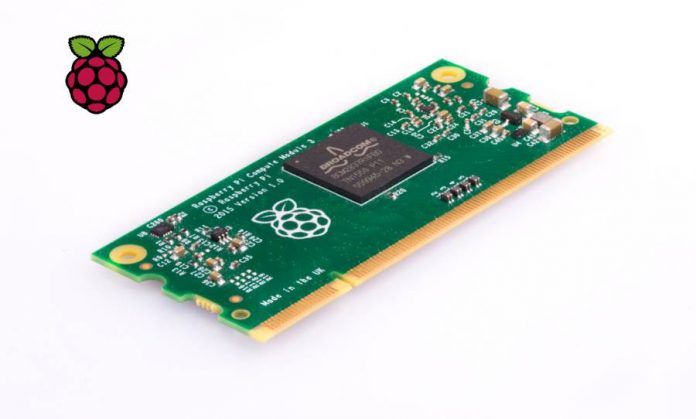
The Compute Module, one of Raspberry Pi’s primary products since its launch in 2014, recently received a much-expected upgrade that gives it more RAM and ten times more CPU performance.
The British company put out the CM as a way to get more people into building their printed circuit boards, or PCBs, just like the Raspberry Pi had the goal to get more people interested in general computer building.
The new module bases itself out of the latest Raspberry Pi release, the Pi 3, and contains the same BCM2837 processor, capable of providing up to 1.2GHz of computing. Also, the module now features 1GB of RAM.
The new CM gives users more freedom to explore different builds
Just like the Pi 3, the new Compute Module can run Windows 10 IoT core, a smaller version of the Microsoft-owned operating system, perfect to make small devices for this field.
Raspberry Pi also scrapped the fixed 4GB of eMMC memory for an empty slot so users can add a personal flash memory. However, they will sell this board as a ‘Lite’ version, the standard one still keeping the embedded eMMC.
The company is also unveiling an updated version of their IO breakout board, named CMIO3. The product will be compatible with all three versions of the Compute Model.
Tech enthusiasts can make use of the CM3 as a direct replacement of the CM1, albeit with a few ‘caveats,’ as the website states. They both have the same pins. However, the CM3 is 1mm taller than its predecessor and will generate a lot more heat under heavy stress.
Price and release date
The standard Compute Model 3 will sell at $30 while the ‘Lite’ version with an SD card slot will sell for $25. The new IO board sells for approximately $116 at retailers such as RS Components or element14.
The prices exclude all taxes and shipping and count for any size in the order. The CM3 and related products are already available in the UK, with international shipping limited in some instances.
Helping the next generation of computer scientists
With this new release, Raspberry Pi further solidifies their reputation as the leading provider of low-cost computer hardware for small projects and learning.
Their single-board computers draw upon the form factor of standard DDR2 SODIMM products, making them easily customizable and upgradeable.
The company’s products have given many people a headstart for innovation and have even brought IT learning to develop countries.
Source: Raspberry Pi










